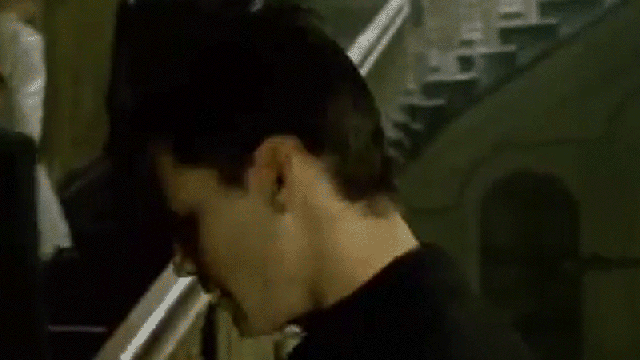You’ve been here before. You’ve read this article already. Every word feels familiar. Even the room you’re sitting in feels the same. You know exactly what happens next.
Déjà vu is a glitch in the matrixImage: The Matrix
Actually, you don’t — you just think you do. A pair of researchers form Colorado State Researchers dug into the feeling of premonition that often accompanies déjà vu, using lab experiments that tried to induce the sensation and tracked whether subjects really did know what would come next. As it turns out, déjà vu didn’t seem to bestow the ability to predict the future.
“The results suggest that feelings of premonition during déjà vu occur and can be illusory,” writes the study’s first author, Anne Cleary, in the study published in the journal Psychological Science.
Scientists are still trying to wrap their heads around déjà vu. They know that the phenomenon is connected to memory, and they it often comes with that prickly feeling of premonition.
The researchers had their subjects navigate a three-dimensional world in a sort of first-person VR game. The scenes varied in appearance, and some of them required the same path through, like the same maze rendered with different-looking walls. They wanted to know if, after viewing a previous scene, the subjects would experience déjà vu, feel like they could predict where to turn next at some critical point, or correctly predict what happened next.
Generally, the subjects were more likely to have déjà vu if they traversed the same path in a different scene. They also felt like they could predict the next turn — but they couldn’t actually predict it better than chance alone.
The authors don’t completely rule out déjà vu’s ability to make correct predictions in other situations. Experiments like these are limited by the fact that they’re occurring in a lab, not in real life.
One researcher who was not involved in the study, psychologist Daniel Schacter at Harvard, told Gizmodo that he thought the paper presented “striking evidence that a common but perplexing feature of the déjà vu experience, the subjective sense that one knows what is going to happen next, is an illusion that is rooted in the close tie between memory and future thinking.”
Schacter said the research has lots to do with the function of memory in general “to support our ability to imagine and think about future experiences. But this study provides novel evidence regarding how the future-oriented nature of memory is played out during a déjà vu experience.” In other words, memory helps you think about the future, but probably won’t let you predict it.
So, as Cleary writes, you’re more likely to feel like you can predict the future if you have déjà vu, “Even though there is no evidence of actual prediction ability during déjà vu states or of any association between the feelings of prediction and the likelihood of actual prediction.”
